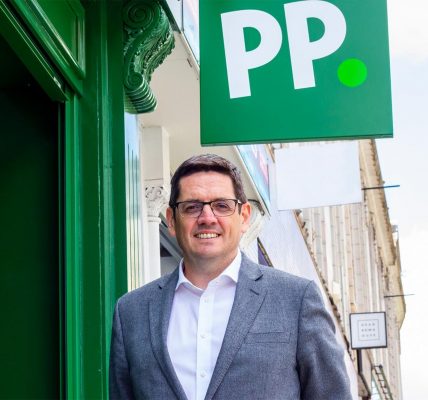It’s the pessimists that lose out… but so can the optimist – Sarah Coles
I’ve got bad news for pessimists. Of course I do. When you’re a pessimist, life is just an endless parade of bad news. This time it turns out that being pessimistic can damage your finances.
The fundamental problem for pessimists is that they expect the worst, which makes them hold back from taking calculated risks, because they calculate that something will go wrong.
This means they tend to be reluctant to invest, because they’re fixated on the risk that stock markets will fall, and overlook the fact that on average, over the long term, they tend to rise.
Instead, pessimists often prefer to keep their cash in a savings account.
And because they’re worried that life will take an unexpected turn and they’ll need it all in a hurry, they prefer easy access accounts.
Unfortunately, keeping your money in this kind of account will tend to mean your savings lose value after inflation, and if you hold large amounts of cash for a long time, this will cost you dear.
It’s a sad irony that an over-riding fear of losing money means pessimists are more likely to lose money.
The nature of pessimism also raises the risk that if something is difficult, they’ll assume it’s impossible, so will give up without really trying. This could be anything from drawing up a budget to setting a target for savings.
They might make a start, hit a challenge, and decide there’s no way they can possibly do it.
It’s one reason why a study in the US a couple of years ago found that pessimists were less likely to save for the future.
Pessimism isn’t just damaging for individuals.
If we all assume life will steadily get worse and worse, we risk harming the broader economy too, because confidence is the secret ingredient for economic growth. Without it, people will be afraid to spend any of the cash they saved during lockdowns, so their fear that the economy won’t pick up again becomes a self-fulfilling prophecy.
At this stage, optimists are probably pretty pleased with themselves and hopeful for their own future.
I mean, they’re optimists, when are they not? However, relentless optimism can do just as much damage as miserable pessimism.
Optimists tend to overestimate their ability to manage their own finances. It means they may well take on debts that they can’t afford to repay, because they assume they’ll be better off in the future.
Alternatively, they might set up complicated financial arrangements designed to beat the system, which involves moving their money around like clockwork.
They have full confidence in their ability to do this, but it doesn’t always translate into actually getting round to it.
There’s also the risk that they set themselves overly-optimistic targets – like saving 90 per cent of everything they earn. Punishing targets mean they’re far more likely to fall short, which runs the risk they’ll give up.
They may also overlook the potential for bad things to happen, so they don’t make plans for it.
If they overlook the risk of dying, they may avoid buying life insurance or making a will – which can leave their family in all sorts of difficulty.
If they underestimate the risk of getting sick, they may not consider insurance to cover their income.
And if they assume they’ll never lose their job or their income, they may not build a savings safety net.
If bad things do happen, they may decide it’s just a blip, because it doesn’t fit with their overall view of the world. They may then decide they can borrow their way through a crisis, because things are bound to turn out OK in the end.
The trouble is that there are times when the crisis can vastly outlive their ability to borrow through it.
At their most irritating, optimists just believe everything will turn out right in the end, so they don’t bother planning for it.
A friend of mine believed he was building a business worth millions, so there was no need to worry about anything like insurance or a pension.
It didn’t matter how much we badgered him about having a Plan B, he had a Del Boy level of commitment to the idea that his fortune was just around the corner.
Illness meant he eventually stopped work in his forties, when there was no intrinsic value in his business, and nothing for him to fall back on.
So while pessimism isn’t the answer, optimism isn’t either. What you’re looking for is a delicate balance of both: hoping for the best and planning for the worst.
You need the savings, insurances, will and possibly even the prenup of a realist, but at the same time you need enough faith in the future to invest in it.
The FCA has discovered that we’re foxed by freebies. If insurers offer us freebies or discounts, we find it much harder to pick the best deal.
The FCA ran an experiment offering people a range of promotions, and asked them to pick the best.
Cash promotions (like £50 off or a 10 per cent discount) cut their ability to pick the best deal by 28 per cent, cash equivalents (like 10 per cent cashback or a £40 voucher) cut it by 16 per cent, and non-cash discounts (like cinema tickets or a free toy) cut it by 7 per cent.
A major part of this was that the maths was just too complex or time-consuming to complete, so only 2 per cent of people calculated the value of a cash deal correctly.
In many cases, approximations were reasonably effective in helping people find the best deal, but they tended to over-estimate the value of a cash incentive.
The researchers suggested that this is because we have come to associate deals with pound signs or percentage figures in them as being discounts, so if we’re not prepared to do the maths, we’re more inclined to believe that they must be the best deal around.
It means we can’t afford to get carried away with freebies if we’re going to track down the cheapest deal.
We need to take the time to do the maths, so we know exactly what’s on offer and can choose the deal that’s right for us – even if it doesn’t come with a free cuddly toy.










